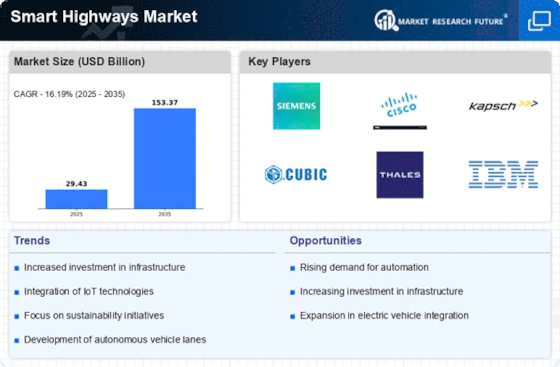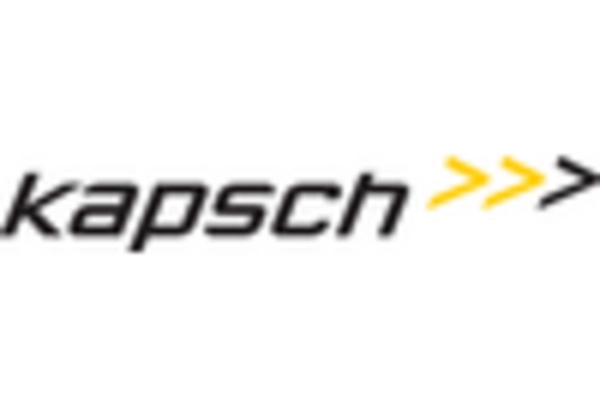Market Share
Smart Highways Market Share Analysis
The Smart Highways market is influenced by a variety of market factors that shape its growth and development. These factors play a crucial role in determining the demand and supply dynamics within the market.
One of the key market factors affecting the Smart Highways market is the increasing need for efficient and sustainable transportation solutions. As urbanization continues to rise, the demand for smart transportation systems that can alleviate traffic congestion and reduce carbon emissions has become a priority for governments and transportation authorities. Smart highways offer a range of features such as intelligent traffic management systems, real-time monitoring, and automated toll collection, which contribute to the overall efficiency and sustainability of transportation networks.
Another market factor that has a significant impact on the Smart Highways market is government regulations and initiatives. Governments around the world are increasingly recognizing the potential benefits of smart transportation systems and are implementing policies and regulations to support their development. These regulations often include incentives for the adoption of smart highway technologies, such as tax breaks or subsidies, which encourage both public and private sector investments in the market.
Technological advancements also play a crucial role in shaping the Smart Highways market. With rapid advancements in areas such as internet of things (IoT), artificial intelligence (AI), and data analytics, smart highway technologies are becoming more sophisticated and capable of delivering innovative solutions. These advancements enable the integration of various systems and devices, such as sensors, cameras, and communication networks, which enhance the overall performance and functionality of smart highways.
The growth and development of the Smart Highways market are also influenced by the level of public awareness and acceptance of these technologies. As smart highway technologies are relatively new, there may be skepticism and resistance from the public towards their adoption. However, increased awareness campaigns and demonstration projects showcasing the benefits of smart highways can help in building trust and acceptance among the public, thereby driving market growth.
Lastly, market factors such as competitive landscape and industry collaborations also shape the Smart Highways market. The market is characterized by the presence of both established players and emerging startups, which compete to offer innovative solutions and gain market share. Collaborations between technology providers, infrastructure developers, and transportation authorities are also common, as they help in leveraging each other's strengths and expertise to deliver comprehensive and integrated smart highway solutions.


















Leave a Comment